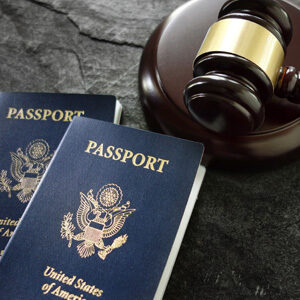 In this article, you can discover:
In this article, you can discover:
- The requirements a US citizen must meet to file for a fiancé visa.
- When an intended immigrant’s history could lead to the denial of the fiancé visa.
- Why previous denials of work or visitor visas do not necessarily affect the approval of a fiancé visa.
Can The US Citizen File For Their Fiancé Visa On Behalf Of The Fiancé While The US Citizen Is In The US?
Typically, in cases where the petitioner is a US citizen, there is a long-distance relationship with their fiancé who is in a foreign country. The petitioner must meet the requirement of traveling to the fiance’s country at least once, but it is more common for the couple to be in the US. Once the fiancé arrives in the US, they have 90 days to get married and continue the process of obtaining a green card.
Can A Fiancé Travel To The US While Still Waiting For The Visa?
One option is for them to apply for a visitor’s visa, but it’s important to be cautious as violating any rules or regulations could result in a denial of the visa. Additionally, the intent to stay in the US could be seen as a violation, especially if the applicant plans to marry a US citizen and skip the K-1 visa process. When considering an applicant’s eligibility, officials take into account the intent of their visit. If the applicant is coming to the US, they need to have a legitimate reason, such as attending school.
Typically, applicants tend to wait outside the US for the process to complete, though after the K-1 petition is approved, the interview process moves relatively quickly. The lengthiest part of the process is usually waiting for the fiancé’s petition to be approved. Once the USCIS has confirmed the relationship is genuine and all requirements are met, the rest of the process runs smoothly.
What Are Some Of The Reasons That A Fiancé Visa Would Be Denied?
The history of the intended immigrant may include various factors that could affect their immigration status. For instance, if they have violated immigration laws in the US by overstaying their visa or entering illegally, that could be a top reason for denial. Additionally, if they have a criminal history, that could also affect their eligibility.
Failure to respond to USCIS requests for extra evidence could also result in denial, even if the basis for the application is valid. Finally, during the interview process, if USCIS determines that the relationship is fraudulent and not genuine, that could also lead to denial. It’s important to note that a denial based on procedural reasons is not the same as a denial based on the application.
Would A Prior Visa Application Denial In Their Home Country Affect The Approval Of A Fiancé Visa?
Sometimes work visas can be denied due to issues with the employer or job offers. Similarly, many visitor visa applications get denied because they cannot demonstrate strong ties to their home country or are likely to overstay their visas. Age can also be a factor, and if the officer thinks a young person may overstay and work in the US, they may be denied.
However, this denial does not prevent someone from getting approved for a fiancé visa. When filling out a DS-160, you must disclose if you have previously applied for a visa and if it was denied. Although this does not impact your ability to get a fiancé visa, you must disclose it as part of your fiduciary duty. Common reasons for visitor visa denials include age, inability to work or provide financial support, and suspicion of criminal activity or intent to overstay and work in the US. For more information on Filing For A Fiancé Visa In The United States, an initial consultation is your next best step.

